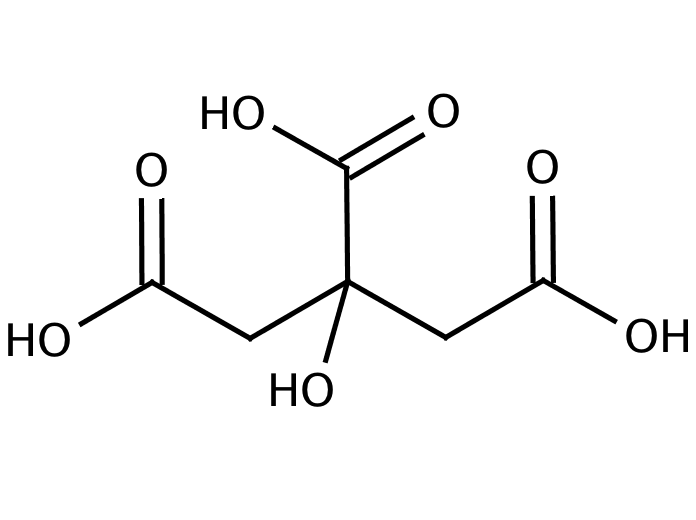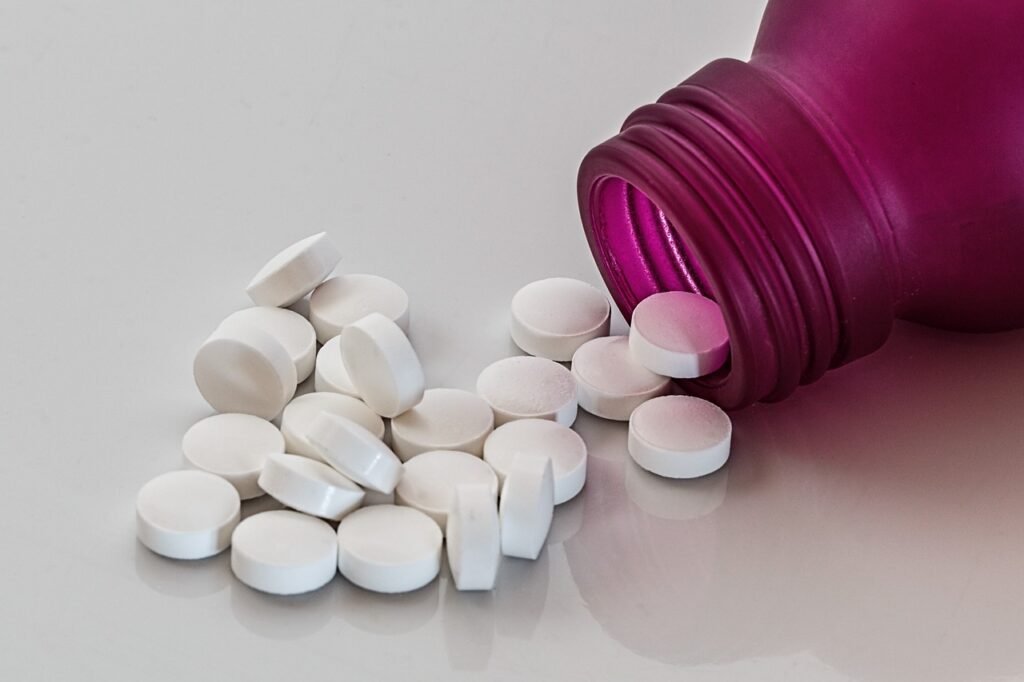Table of Contents
ToggleCitric Acid: It’s one of the most common food additives in our food supply today, yet it remains a mysterious ingredient to many of us. In some countries, citric acid has been used as an additive in food, cosmetics and many other products for over 100 years, mainly as a preservative and flavor enhancer. Given how many you’re likely to come across, you might be wondering if it’s an ingredient to avoid, or if it might actually provide some health benefits.
Where can you find citric acid?
It’s found in foods like citrus fruits (especially lemons and limes), and in a variety of packaged/processed foods, especially those that have an acidic or sour taste. You’ll find citric acid in foods and beverages such as prepackaged fruits and vegetables, canned or canned goods, hummus, salsa, chicken soup, some yogurts and cheeses, baked goods and desserts, soft drinks, beer and wine. It is also an ingredient in many skin care products, cleaners and industrial products such as laundry detergents, kitchen cleaners, dyes and chemical solvents.

What happens if you eat citric acid?
It gets into your bloodstream and eventually your urine, making your urine less acidic. It has also been shown to have antioxidant, alkalizing and anti-inflammatory properties. That being said, it may irritate some people with digestive sensitivities, acid reflux, allergies, or sensitive skin.
The best way to increase your citrus acid intake is to eat more fruits and vegetables each day, especially citrus fruits (lemons, limes, oranges, etc.). Lemons and limes are some of the most beneficial alkalizing foods we can consume on a regular basis, and they do a lot more than just provide us with citric acid.

What is citric acid?
Citric acid is a common food additive and chemical that occurs naturally in citrus fruits and their juices. It is considered a weak organic acid, but not an essential vitamin or mineral because our diet does not require it. It can be naturally occurring, the type found in plants, or it can be artificial in a laboratory.
To synthesize citric acid (the type used in most mass-produced processed foods), sugar is fed to a fungus called Aspergillus niger, a common black mold. Sugar, usually from sucrose, beet or corn syrup, is “fed” to the fungus, which is then mixed with other ingredients such as ammonium nitrate, potassium phosphate, magnesium sulfate, and zinc sulfate. Citric acid is formed during fermentation over the course of 6 to 15 days. This process has been going on since the 1920s, when commercial-scale microbial production of acids first began.

As an organic acid, citric acid is a tricarboxylic acid or a building block of the tricarboxylic acid cycle. It is present in all animal tissues and is formed by oxidative metabolic processes. Today, substances known as citrates are also made from citric acid, a salt or ester designed to control certain health conditions.
Some of the most common citric acid uses include:
Preserves food and beverages due to the ability to maintain the stability of the ingredients
Adds citrus or tartness to food/beverages as a chelating agent to help maintain food texture

Provides fragrance in beauty and cleaning products
Acts as a pH adjuster and alkalizer, helps buffer ingredients, acts as a cleaning and degreasing solvent, acts as an anticoagulant by sequestering calcium in the blood

Is citric acid safe to eat?
According to the Environmental Working Group (EWG), citric acid is “classified as a substance not expected to be potentially toxic or harmful and classified as low priority for human health.” FDA grants it “food additive status” “designated as safe for general or specific, limited food use”. The risk of ingesting citric acid or applying it to the skin generally appears to be low, and it is used with few restrictions in most countries, including the United States.
What does citric acid do to the body?
Here is more information on some of the pros and cons associated with this acid.
Potential Benefits of Citric Acid
May have anti-inflammatory and antioxidant effects – Certain studies have shown that citric acid has antioxidant properties, meaning it can help fight oxidative stress (or free radical damage). In a 2014 study published in the Journal of Medicinal Food, researchers investigated the link between citric acid and endotoxin-induced oxidative stress in the brain and liver of mice. They found that citric acid reduced brain lipid peroxidation and inflammation, liver damage, and DNA fragmentation in mice following injections designed to cause oxidative stress on the brain and liver. Research suggests that citric acid may help reduce lipid peroxidation and downregulate inflammation by reducing cellular degranulation and reducing the release of inflammatory compounds such as myeloperoxidase, elastase, interleukins, and platelet factors.

Has an alkalizing effect – Citric acid is considered an alkalizing substance, despite its acidic taste, which means it can help counteract the effects of consuming high amounts of acidic foods, such as meat and processed grains. Alkaline foods contain more alkaline minerals, such as potassium, magnesium, calcium, sodium, manganese, and iron, which may aid mineral absorption.
May improve endothelial function – Some studies suggest that citric acid may help improve the function of the endothelium, the membrane that lines the inside of the heart and blood vessels and contributes to vasodilation and contraction, blood clotting, immune function, and platelet aggregation. (6) This appears to be achieved by reducing markers of inflammation. Citrate, known as citrate, is used as an anticoagulant (often called a blood thinner) due to its calcium-chelating ability.
May help prevent kidney stones – Kidney stones are more likely to occur when someone’s urine is acidic. According to the Metabolic Stone Clinic at the University of Wisconsin-Madison Hospital, “citric acid is protective; the more citric acid you have in your urine, the more you prevent new kidney stones from forming.” Citric acid and potassium citrate are alkalizing agents, It can make urine less acidic, so it can be used to prevent gout, kidney stones or metabolic acidosis in patients with kidney disease. Citric acid can help prevent small stones from turning into larger “problem stones” by coating them and preventing the material from adhering to the stone.
May Support Skin Health – What Can Citric Acid Do For Your Skin? It is an alpha hydroxy acid that is added to some skin care or personal care products to regulate acidity or to promote skin peeling and regeneration. You’ll find it in some antiaging products like serums, masks, and night creams. It is considered an antioxidant that can help protect the skin from photoaging, environmental damage, and oxidative stress.
Risks and Side Effects
Why citric acid might be bad for you Overall, while there has been concern that artificial citric acid may have some negative health effects, especially when consumed in large quantities from packaged foods, large studies have found no clear evidence of a link between this acid and health problems. However, the following side effects may occur.
May Irritate Skin – For some people, especially those with sensitive skin, citric acid in skin/beauty products may be too strong and irritating. When it’s used in cleaning products, it may also irritate nasal passages and trigger asthma symptoms.
Often made from genetically modified ingredients – Artificial citric acid is often produced using sugars from sugar beets and corn that are likely to be genetically modified organisms (GMO).
Might be linked to mold reactions – While research has not definitively shown that citric acid produced by Aspergillus is harmful, some people still worry about it causing impaired immune function, allergies, and other side effects if inhaled. The Aspergillus (Aspergillus niger) used to make acid does not appear to be deadly or poisonous in most cases, but immunocompromised individuals may have problems from real-life exposure.
So, what’s the bottom line in terms of the risks and benefits of consuming citric acid? Overall, aim to reduce your intake from packaged and processed foods. You should also plan to increase your intake of natural citric acid from antioxidant-rich foods such as lemons, limes, grapefruit, and oranges.
In conclusion, it’s a good idea to check the labels of any packaged foods and supplements you buy so you know which additives you’re consuming. Check to see if the manufacturer specifies which citric acid to use. A general rule of thumb is that the more processed and less expensive a food is, the more likely it is to contain synthetic citric acid. Pharmaceutical/nutraceutical companies generally use higher quality ingredients and add fewer additives.


